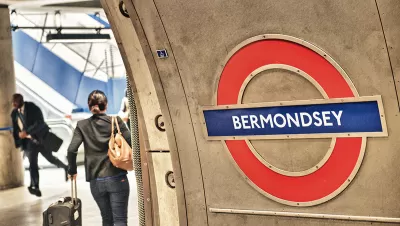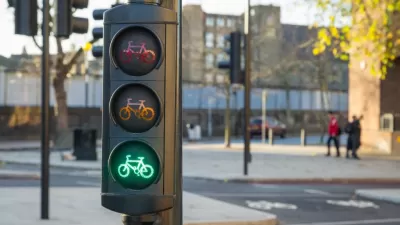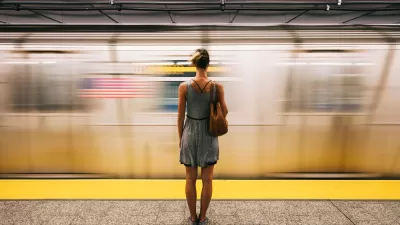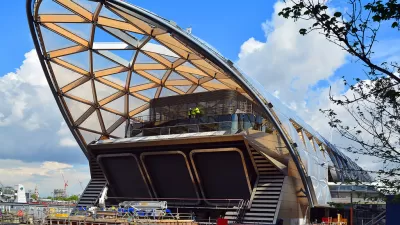Transport for London is forging ahead on several projects to collect and use more rider data. One initiative draws on WiFi connections to map users' paths through the London Underground.

As Zulfikar Abbany writes, the last several decades have seen marked improvements in London's transit network. Data initiatives are one reason why. "It started with ticketing data - things like the Oyster Card, a simple 'tap on, tap off' payment system that has given Transport for London (TfL) masses of data on customer behavior. And they have gone from that to a trial in late 2016 that used WiFi in underground station to monitor the way people move within station, how they make connections, and how that can lead to - or avoid - overcrowding."
Abbany takes comment from Lauren Sager Weinstein, TfL's Chief Data Officer, who is well aware of privacy concerns. According to Weinstein, "We took the principle of data minimization [...] So you only take the data that you need to take. You don't collect more than you need for [your stated] reason. And we were very transparent about it, so customers could opt-out if they didn't want to participate."
In addition to methods like WiFi tracking, TfL maintains an open data policy letting third parties "extend the reach" of the system using certain datasets. The policy has yielded dividends. "A recent study by Deloitte, a financial consultancy, suggests TfL's open data policy was generating annual economic benefits and savings of up to £130 million (145 million euros) for travelers and the authority itself."
FULL STORY: A public transport model built on open data

Study: Maui’s Plan to Convert Vacation Rentals to Long-Term Housing Could Cause Nearly $1 Billion Economic Loss
The plan would reduce visitor accommodation by 25,% resulting in 1,900 jobs lost.

North Texas Transit Leaders Tout Benefits of TOD for Growing Region
At a summit focused on transit-oriented development, policymakers discussed how North Texas’ expanded light rail system can serve as a tool for economic growth.

Why Should We Subsidize Public Transportation?
Many public transit agencies face financial stress due to rising costs, declining fare revenue, and declining subsidies. Transit advocates must provide a strong business case for increasing public transit funding.

How to Make US Trains Faster
Changes to boarding platforms and a switch to electric trains could improve U.S. passenger rail service without the added cost of high-speed rail.

Columbia’s Revitalized ‘Loop’ Is a Hub for Local Entrepreneurs
A focus on small businesses is helping a commercial corridor in Columbia, Missouri thrive.

Invasive Insect Threatens Minnesota’s Ash Forests
The Emerald Ash Borer is a rapidly spreading invasive pest threatening Minnesota’s ash trees, and homeowners are encouraged to plant diverse replacement species, avoid moving ash firewood, and monitor for signs of infestation.
Urban Design for Planners 1: Software Tools
This six-course series explores essential urban design concepts using open source software and equips planners with the tools they need to participate fully in the urban design process.
Planning for Universal Design
Learn the tools for implementing Universal Design in planning regulations.
City of Santa Clarita
Ascent Environmental
Institute for Housing and Urban Development Studies (IHS)
City of Grandview
Harvard GSD Executive Education
Toledo-Lucas County Plan Commissions
Salt Lake City
NYU Wagner Graduate School of Public Service





























